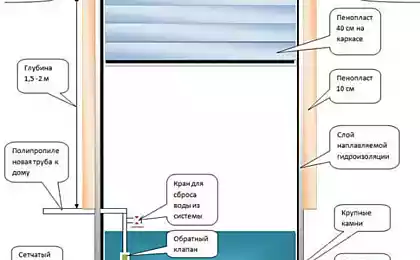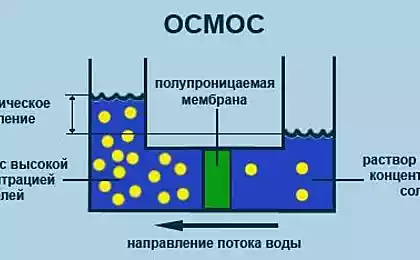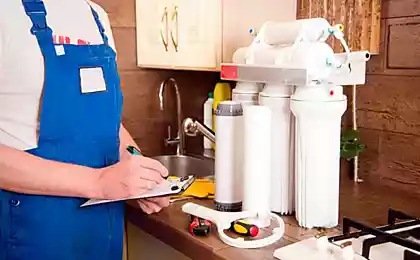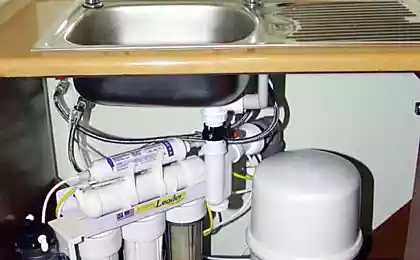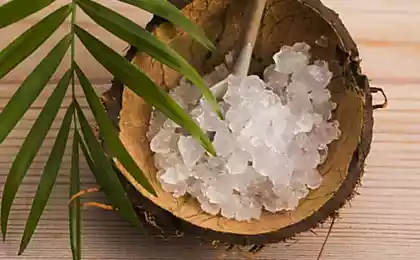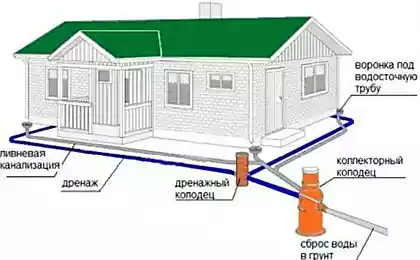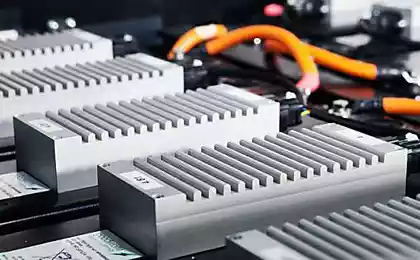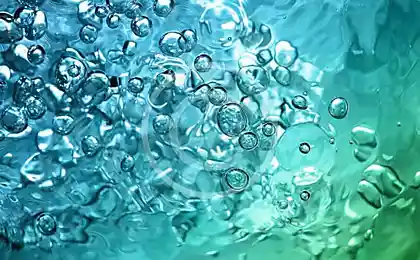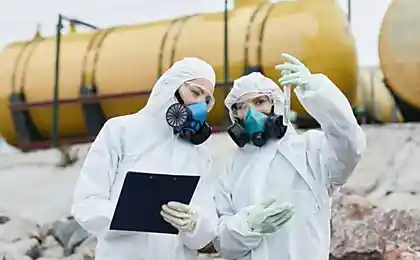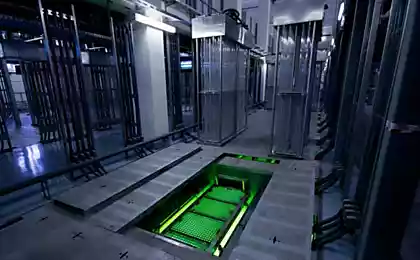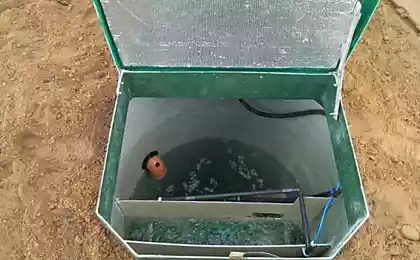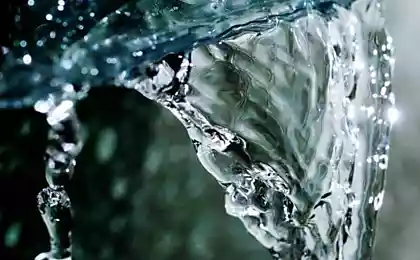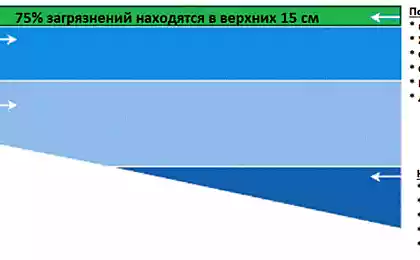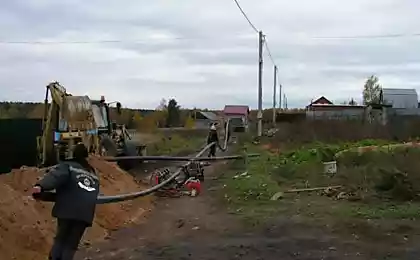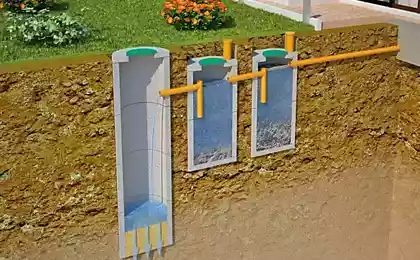553
Hard water on the site: what to do?
If your site is located in the village, where the fence tap water comes from groundwater (especially from deep layers of soil), then surely you are familiar with the problem of hard water. Also with increased water hardness may face the owners of sites with a pre-installed well.
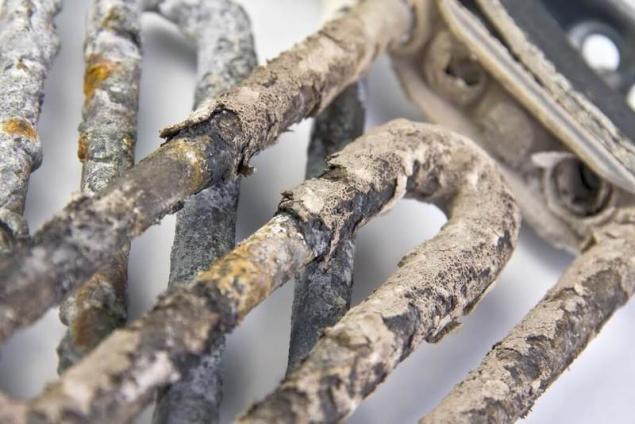
What is hard waterIs water with substances in rocks with which it is in contact for a long time (the longer the contact, the more compounds in the water). Which connections are present in your water can tell the composition of the layers of soil and rocks terrain — usually hardness salts and the high content of iron, magnesium or calcium.
The dangerous water with a high level of stiffnessevery once in a drinking glass with hard water, will not happen absolutely nothing, can only experience a metallic taste. But if eating and drinking such water for a long time, because it can form kidney stones, accumulate salt in the joints, can worsen the condition of skin and hair — hard water dries them. If to speak about the inconvenience of using hard water, it is a perpetual residue in the kettle, clog pipes and hoses, shortening the service life of the washing machine and other heating elements.
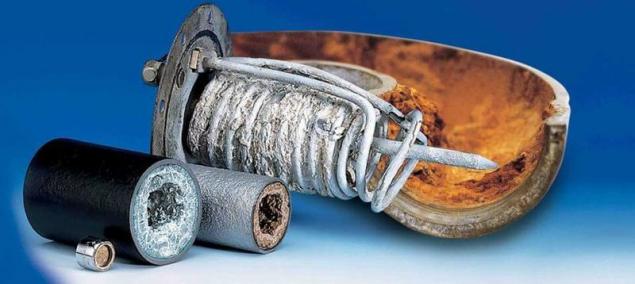
How to understand that the water in the area of the hardfirst, you can determine a good water or not, by using folk remedies. The first way is the simplest: squeeze the mirror with water and allow drying. If the drops left a strong trail — hard water, if the trace is slightly visible — soft. Method number two: take advantage of detergent and watch the amount of foam. The fact that hard water significantly reduces the formation of foam and cleaning quality tools.
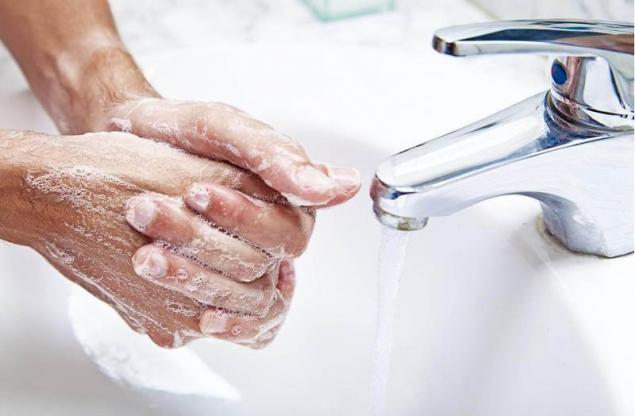
But the most accurate method was to measure qualities of water in the laboratory. There are special measures of rigidity, which will be guided by experts:
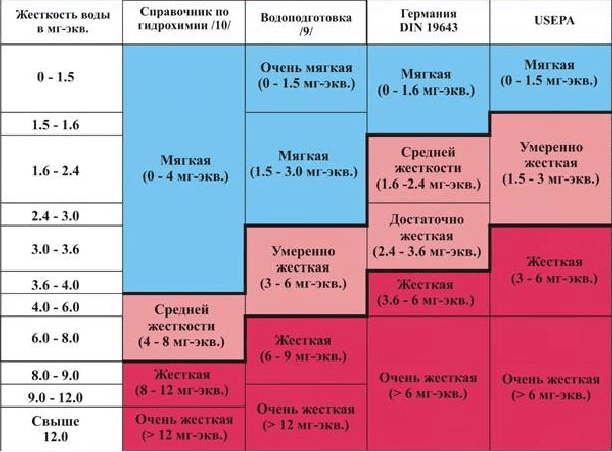
Methods to reduce water hardness byBoiling. The most ancient and simple method of softening of water and reduction in its number of salts. Boiling helps in cases where the water contains compounds of calcium bicarbonate (the compound forms a precipitate in the kettle when heating) and calcium sulfate. Will not help boiling, if water is saturated with magnesium. The main disadvantages of this method is the low productivity and damaged appliances.
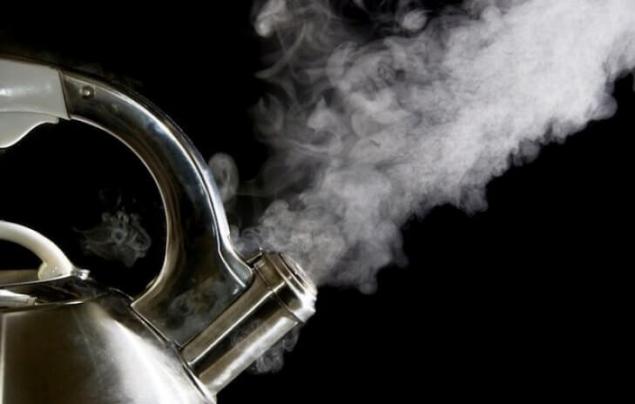
Membrane method. The principle of this method lies in the special molecular membranes which impede the passage of impurities and salts in the drinking water. The effectiveness of the membrane technology is quite high — about 98%.
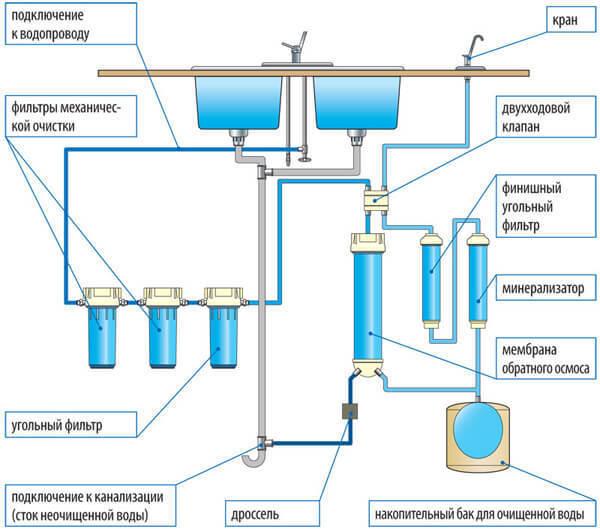
Reagent or chemical method. This method is suitable for water softening, which is used only for household needs — due to the presence of the reagents (lime, sodium compounds, caustic soda and synthetic compounds, e.g., trisodium phosphate), a water can not drink. Selection of reagents is strictly depending on the presence of certain compounds and salts in the water.
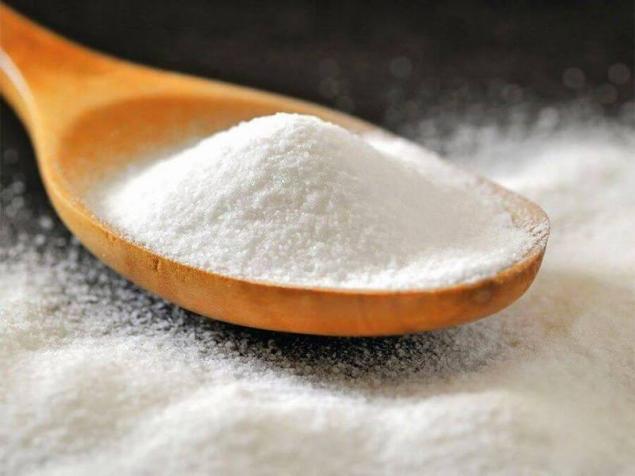
Magnetic and electromagnetic method. This method is based on the effects on salt and impurities by a magnetic field, passing through which, they lose the ability to fall out as sludge. In fact, this method does not remove the compounds, which add rigidity to the water, it just saves you from the unpleasant residue on pipes and appliances. The electromagnetic method is characterized in that in its application derived from the water impurities go into the sewer.
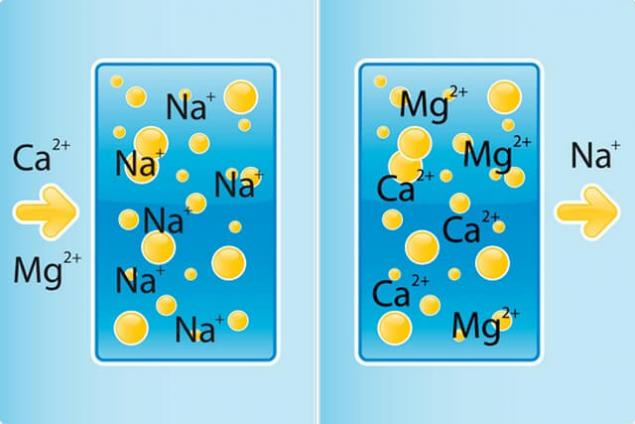
Ion-exchange method. In fact, devices using this principle of the water softener, change ions of calcium and magnesium for sodium ions, which, unlike the first two, it is absolutely safe and leave no residue.
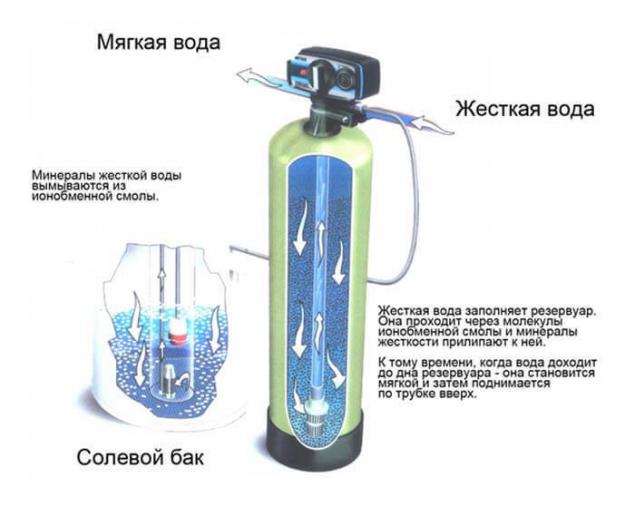
It is worth noting that in our time are such purification systems and water softener, which can be used a combination of several methods described above. To find out which method is suitable for water softening in your area, you should contact the service of water purification city or region. published
Source: estp-blog.ru/rubrics/rid-30947/

What is hard waterIs water with substances in rocks with which it is in contact for a long time (the longer the contact, the more compounds in the water). Which connections are present in your water can tell the composition of the layers of soil and rocks terrain — usually hardness salts and the high content of iron, magnesium or calcium.
The dangerous water with a high level of stiffnessevery once in a drinking glass with hard water, will not happen absolutely nothing, can only experience a metallic taste. But if eating and drinking such water for a long time, because it can form kidney stones, accumulate salt in the joints, can worsen the condition of skin and hair — hard water dries them. If to speak about the inconvenience of using hard water, it is a perpetual residue in the kettle, clog pipes and hoses, shortening the service life of the washing machine and other heating elements.

How to understand that the water in the area of the hardfirst, you can determine a good water or not, by using folk remedies. The first way is the simplest: squeeze the mirror with water and allow drying. If the drops left a strong trail — hard water, if the trace is slightly visible — soft. Method number two: take advantage of detergent and watch the amount of foam. The fact that hard water significantly reduces the formation of foam and cleaning quality tools.

But the most accurate method was to measure qualities of water in the laboratory. There are special measures of rigidity, which will be guided by experts:
- soft water — salt content of not more than 2 mEq/l;
- normal salt content in the range of 2-4 mEq/l;
- hard — salt content in the range of 4-6 mEq/l;
- water of high hardness — salt content higher than 6 mEq/L.

Methods to reduce water hardness byBoiling. The most ancient and simple method of softening of water and reduction in its number of salts. Boiling helps in cases where the water contains compounds of calcium bicarbonate (the compound forms a precipitate in the kettle when heating) and calcium sulfate. Will not help boiling, if water is saturated with magnesium. The main disadvantages of this method is the low productivity and damaged appliances.

Membrane method. The principle of this method lies in the special molecular membranes which impede the passage of impurities and salts in the drinking water. The effectiveness of the membrane technology is quite high — about 98%.

Reagent or chemical method. This method is suitable for water softening, which is used only for household needs — due to the presence of the reagents (lime, sodium compounds, caustic soda and synthetic compounds, e.g., trisodium phosphate), a water can not drink. Selection of reagents is strictly depending on the presence of certain compounds and salts in the water.

Magnetic and electromagnetic method. This method is based on the effects on salt and impurities by a magnetic field, passing through which, they lose the ability to fall out as sludge. In fact, this method does not remove the compounds, which add rigidity to the water, it just saves you from the unpleasant residue on pipes and appliances. The electromagnetic method is characterized in that in its application derived from the water impurities go into the sewer.

Ion-exchange method. In fact, devices using this principle of the water softener, change ions of calcium and magnesium for sodium ions, which, unlike the first two, it is absolutely safe and leave no residue.

It is worth noting that in our time are such purification systems and water softener, which can be used a combination of several methods described above. To find out which method is suitable for water softening in your area, you should contact the service of water purification city or region. published
Source: estp-blog.ru/rubrics/rid-30947/
Microweave turbine for those who love the ease and independence
The first, second and compote: a direct path to obesity
